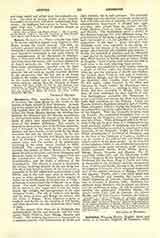

Ancyra, COUNCILS OF. —Three councils were held in the former capital of Galatia (now Angora) in Asia Minor, during the fourth century. The first, an orthodox plenary synod, was held in 314, and its twenty-five disciplinary canons constitute one of the most important documents in the early history of the administration of the Sacrament of Penance. Nine of them deal with conditions for the reconciliation of the lapsi; the others, with marriage, alienations of church property, etc. The synod of 358 was a Semi-Arian conciliabulum, presided over by Basil of Ancyra. It condemned the grosser Arian blasphemies, but set forth an equally heretical doctrine in the proposition that the Son was in all things similar to the Father, but not identical in substance. In 375, Arian bishops met at Ancyra and deposed several bishops, among them St. Gregory of Nyssa.
THOMAS J. SHAHAN

